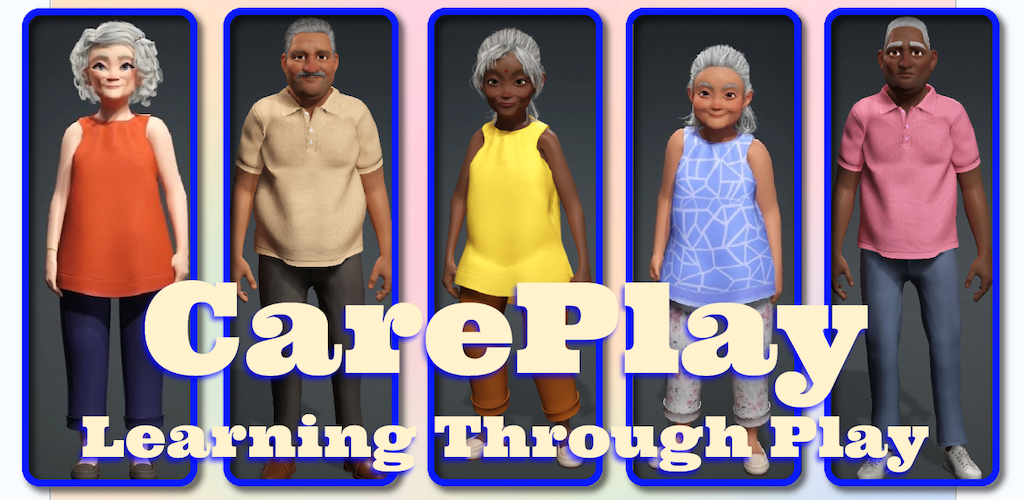Playing video games is transforming dementia care training

Training in dementia care has long relied on textbooks, lectures, and e-learning modules. Now, a creative twist on education is emerging: video games.
Dr Mandy Salomon, an Australian entrepreneur and Chief Scientist at Mentia Health, has developed CarePlay.
It is a role-playing game designed to strengthen care partners’ skills through immersive scenarios.
This September, during World Alzheimer’s Month, the Dementia Learning Centre (DLC) is proud to launch CarePlay in Aotearoa New Zealand, marking a significant step forward in how dementia care training is delivered.
Caroline Bartle, Director of the DLC, says the launch reflects a commitment to innovation in care education.
“We’re thrilled to bring CarePlay to Aotearoa. This new and complementary learning tool will give care partners the confidence and skills they need to make everyday care more compassionate and effective.
What excites me most is how CarePlay encourages collaboration. When care partners reflect together, they learn from each other and strengthen their ability to provide care that truly upholds dignity and respect.”
For Dr Salomon, the idea grew out of a simple question: how do we train the next generation of care partners in ways that match their learning styles?
“Learning doesn’t just have to be one thing, it can also be this.”
Not everyone learns best through books or formal lessons, she says.
Some care partners are new migrants with limited English, while others are older adults entering caregiving later in life.
Add in shorter attention spans in today’s fast-moving digital culture, and traditional methods can fall short.
“Everyone uses a phone; that’s pretty universal. And gaming can mean lots of things to different people. But what really matters is that it’s interactive and engaging.”
CarePlay puts care partners in the driver’s seat of everyday situations faced in residential or home care.
At launch, the game will include five personas and ten different scenarios, each based on real-world challenges.
One scenario introduces a new resident who is anxious and reluctant to leave her room. Another features a gentleman who resists changing his clothes.
Care partners must choose how to respond: use direct instruction, or take a gentler approach that builds trust and preserves dignity.
The consequences unfold in the game, offering insight into which strategies succeed and which escalate tension.
“Role-playing is a great way to learn because if you get it wrong in the game, no one is harmed,” Dr Salomon says.
“But if you get it right, you see the positive outcome and remember it.”
Beyond individual choices, the game reflects best-practice dementia care principles, such as avoiding language that diminishes confidence, or using body positioning that supports respectful interaction.
Some of the greatest benefits of CarePlay are the conversations it can spark. After playing, groups of care partners often discuss the scenarios together, sharing how the game mirrored situations they’ve faced.
“Even people with years of experience say they’ve learned new things,” Dr Salomon says.
“Some describe the game as ‘fun and ‘insightful’, while others see it as a safe space to test different approaches without risk.”
CarePlay works on common devices (iPads, tablets, and smartphones), making it widely accessible.
While it can be played individually, the greatest value often comes when teams reflect on their experiences collectively.
The DLC is bringing CarePlay to New Zealand care partners this September as part of World Alzheimer’s Month.
It’s another step in its mission to provide transformative education that recognises the many pathways care partners take in their learning journeys.
However, care partners won’t download CarePlay directly from an app store just yet; instead, organisations will register staff to play.
In the future, Mentia Health aims to release a consumer version that will allow families and communities to access the tool more broadly.
For Dr Salomon, CarePlay is only the beginning. Mentia Health is already exploring how artificial intelligence could support both care partners and people living with dementia mate wareware in new ways.
“We hope this collaboration with Alzheimers NZ is just the start,” she says.
“There are other tools in the pipeline that can build on what CarePlay has started.”

